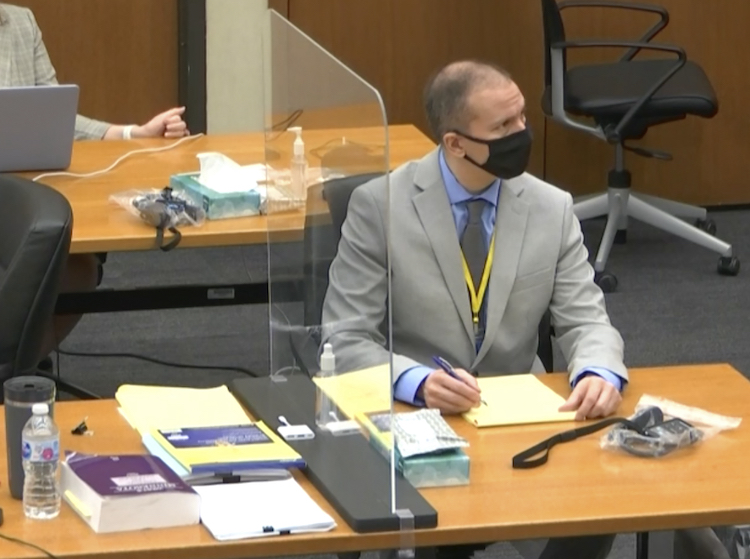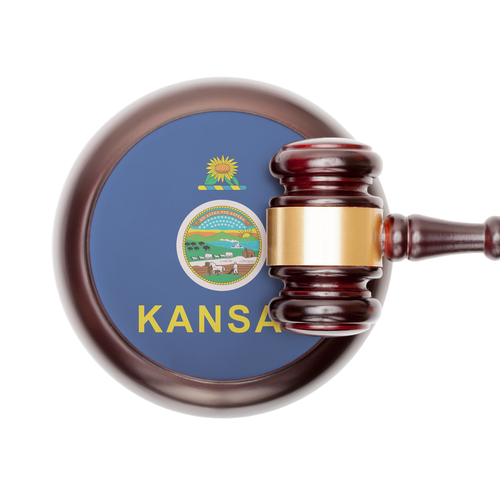Why were lawyers arguing about third-degree murder charge in case of cop charged in George Floyd killing?

Defendant and former Minneapolis police officer Derek Chauvin listens as Hennepin County Judge Peter Cahill presides over pretrial motions before jury selection Tuesday at the Hennepin County Courthouse in Minneapolis. Chauvin is charged in the May 2020 death of George Floyd, a 46-year-old Black man. Photo from the Associated Press/Court TV Pool.
Updated: A Minnesota judge on Thursday reinstated a third-degree murder charge against Derek Chauvin, the former Minneapolis police officer accused in the death of George Floyd.
Judge Peter Cahill of Hennepin County, Minnesota, reinstated the charge a day after the Minnesota Supreme Court rejected an appeal by Chauvin. The New York Times and the Washington Post have coverage.
Chauvin’s lawyers had opposed the additional charge, while prosecutors sought to reinstate it. Prosecutors likely wanted to add the charge because it gives jurors a middle-ground choice and increases the chances of getting a conviction.
The offense of third-degree murder in Minnesota applies to those who cause death without intent “by perpetrating an act eminently dangerous to others and evincing a depraved mind, without regard for human life.”
Chauvin is also charged with second-degree unintentional murder and second-degree manslaughter for kneeling on the neck of Floyd, a 46-year-old Black man, before his death in May 2020.
The Associated Press, the Minneapolis Star Tribune, USA Today, KARE 11 and the Washington Post had earlier coverage of the legal fight over the third-degree murder charge.
Cahill had tossed the third-degree murder charge in October 2020, but an appeals court directed him to reconsider in a March 5 opinion.
Cahill had ruled that the third-degree murder statute applies only when multiple people are put in danger and not when a dangerous act is directed at just one person. In Chauvin’s case, only Floyd was endangered.
That reading of the law was called in to question, however, when the Minnesota Court of Appeals ruled in February in the case of former Minneapolis police officer Mohamed Noor, who was convicted of third-degree murder for a fatal shooting. The appeals court said the third-degree murder statute applied, even if just one person is put in danger.
The prosecution cited the opinion in seeking to reinstate the charge against Chauvin. Cahill initially refused, saying the Noor case was not yet binding precedent because it could still be appealed. In its March 5 opinion, the Minnesota Court of Appeals said a precedential opinion is binding authority immediately upon filing, and Cahill should reconsider.
Cahill began jury selection Tuesday, according to tweets by KARE 11 reporter Lou Raguse. Opening arguments are scheduled for March 29.
The Minneapolis Star Tribune outlined the basis for the other charges against Chauvin. A second-degree murder charge applies if Chauvin caused Floyd’s death while committing or trying to a commit a felony, which in this case is third-degree assault. Prosecutors only have to show that Chauvin’s actions were a “substantial causal factor” in Floyd’s death, rather than the sole cause of death.
Minnesota law provides that police officers may use force that a “reasonable peace officer in the same situation would believe to be necessary.” As a result, the state will have to prove that Chauvin’s use of force was unreasonable.
The manslaughter charge applies if Chauvin caused Floyd’s death through negligence that created an unreasonable risk, and he consciously took the chance of causing severe injury or death.
Chauvin’s lawyer has argued that Floyd died because he had fentanyl and methamphetamine in his system and had underlying health conditions.
See also:
ABAJournal.com: “Death of George Floyd brings debate on qualified immunity for police misconduct”
ABAJournal.com: “ABA president says ‘our hearts are aching,’ calls for action in wake of George Floyd’s death”
Updated March 11 at 10:20 a.m. to report on the judge’s decision to reinstate the third-degree murder charge. Updated March 12 at 3:15 p.m. to add information on second-degree murder.



